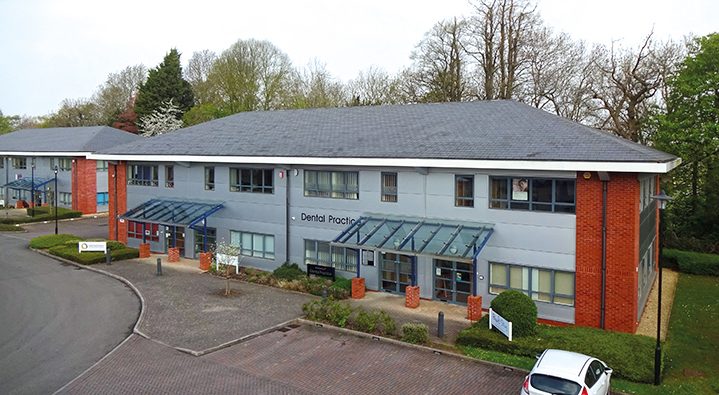
Seb Evans interviews Christie & Co’s Simon Hughes about the difference between valuing and selling a single practice and group.
The dental market is very much in vogue these days. In this article, we talk with Simon Hughes, managing director – medical at specialist business property adviser Christie & Co to look at what is happening at the corporate end of the market and what the differences are when valuing and selling a group of practices.
Seb Evans (SE): There seems to be a new breed of buyer in the dental sector. Can you explain what’s driving this interest?
Simon Hughes (SH): One of the most prominent recent trends is for private equity (PE) investors to acquire dental groups. Dentistry is viewed as low risk compared to other sectors with contracted income in the NHS sector and a buoyant private sector. The general profile of UK dentistry is increasing and, while there are some shocking news stories from time to time in the press, awareness of the importance of good oral health is improving.
SE: So what type of dental business are investors looking for?
SH: It’s definitely evolved over the last couple of years or so. Five out of the largest seven corporates have recently been acquired by private equity, so this means there are really no more opportunities at the top of the market. PE tends to invest for five years or more – it’s called ‘buy and build’ – the theory being that as a group increases in size, its value also does exponentially. Hence why most corporates are very actively expanding.
SE: And what about smaller groups, what are they doing?
SH: A number of them are looking to grow so that they, in time, can take on private equity investment. Others are fiercely independent and are happy to grow more slowly with traditional bank debt, but retain full control.
SE: Is it correct there are more small groups than we’ve seen before?
SH: Certainly, the increasing number of entrepreneurs and availability of bank funding has dramatically increased practice ownership. Many of these go on to acquire more and we estimate there are at least 400 owners of two practices or more in the UK.

SE: I saw a comment that more than 80% of newly-qualified dentists do not wish to own a dental practice – is that correct?
SH: I saw that quoted too. I can understand that practice ownership is not for everybody, but as I spend my life talking with buyers, that’s not something I hear very often!
SD: I understand that Christie & Co deals with larger practices and groups – how does this segment of the market differ from smaller practices sales?
SH: We deal with all practice types and price ranges. It’s true though that we have dealt with a number of the larger transactions in recent years, but to build the relationships with the owners of groups, it helps if we’ve sold them their first practice.
SE: When it comes to valuing and selling a group of practices, what are the main differences?
SH: When we are valuing a group for sale, the first thing we consider is the size, geographical spread, performance and likely buyer profile. Often, in a group of 15 practices, there are smaller ones that could be more profitable in the independent sector. These can dilute the overall group value and sometimes be sold off individually for a premium to first or second-time buyers, leaving a core group of larger, more profitable businesses.
SE: Is the method of valuation similar to a single practice?
SH: Valuation is part art and part science. The so-called ‘pence in the pound’ approach, which is simply a multiple of turnover, doesn’t really cut it anymore. It’s simply not sophisticated enough and doesn’t take into account debt serviceability.

SE: When you come to prepare to market a group, what’s next?
SH: Preparation is absolutely key. Buyers of these businesses are very sophisticated people and have teams of professional advisers to verify the numbers. We make sure we understand the business in detail – this is important to avoid any nasty surprises down the line once heads of terms have been agreed with a buyer.
We’ll typically produce an information memorandum about the business, supported by an online data room, which gives prospective buyers what they need to make an informed offer. Sometimes management presentations are organised for the buyer and seller to effectively pitch to each other. It’s good to get that personal contact at the beginning of the process.
In my experience, there are more buyers for dental groups than ever and multiple offers are normally generated on most of our projects.
SE: Do the larger transactions take longer than smaller ones?
SH: Interestingly, not normally. I think this reflects that often the buyer and seller are not working clinically so can work on the sale during daylight hours.
SE: You don’t see many dental groups for sale – are they advertised as you would see with a single practice?
SH: It’s not necessary. It’s very much about using our network and connections to ensure the shortlist of buyers has the right mix of investors, corporates, and mini groups. We recently sold Total Dental Care on behalf of Anthony and Mike Zybutz, and the Houston Group for Ceri and David Houston. Both were handled confidentially and had interest from dental companies and financial buyers. It was fascinating to see the change in buyer profile from a few years ago.
SE: Is it easy to sell a dental business these days?
SH: I think you’re asking the wrong person! Joking aside, the tougher part of the job where we feel we really add value is project managing the transaction to completion on the terms agreed. Dental groups are complicated businesses and a lot can go wrong during a sale process lasting a number of months. We still see some groups ‘go it alone’ when they sell. I would obviously say this, but I’m amazed anybody would sell without a formal sale process – how can you ever be sure the price is right?
For more information about Christie & Co, visit www.christie.com.


